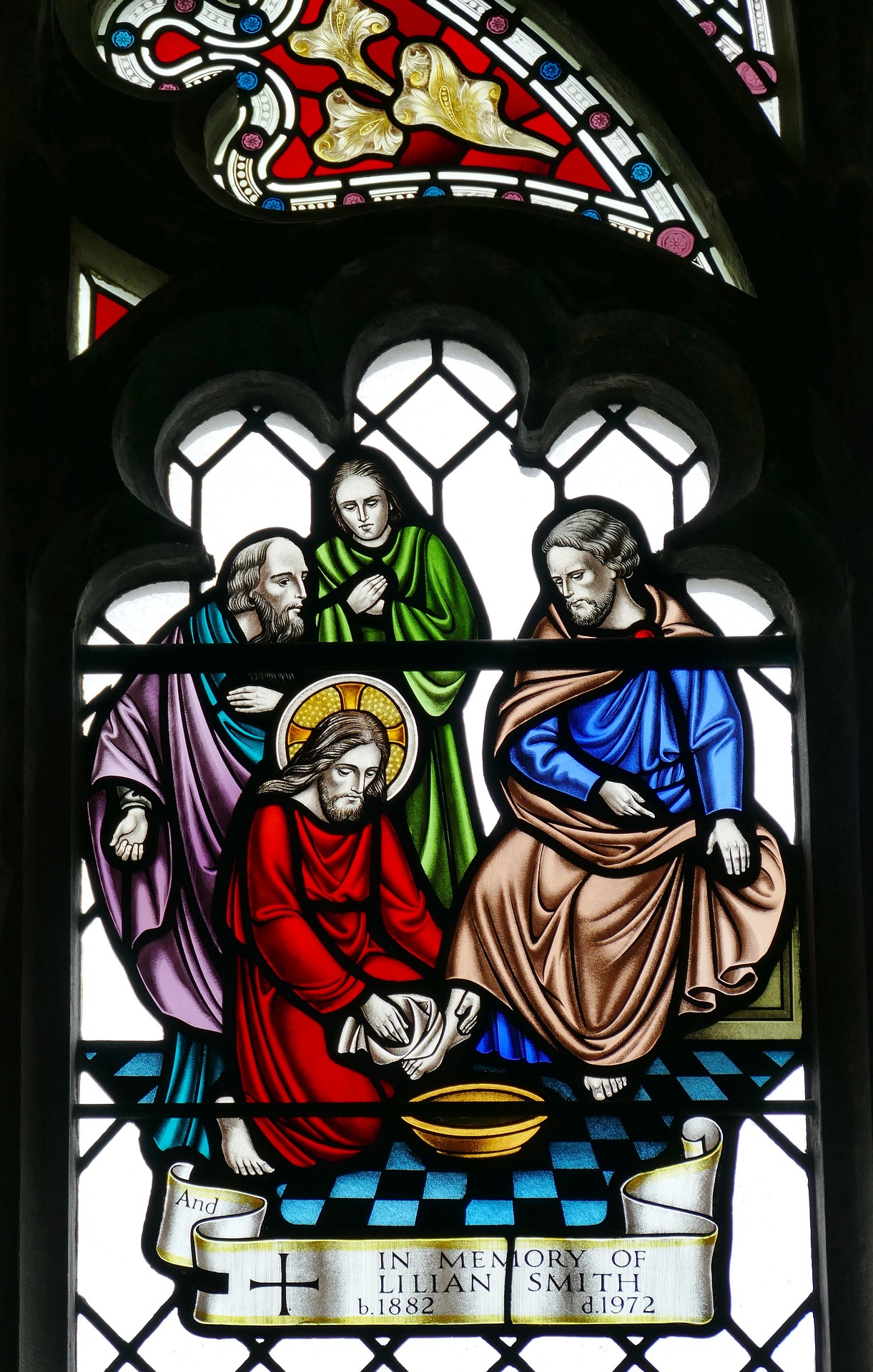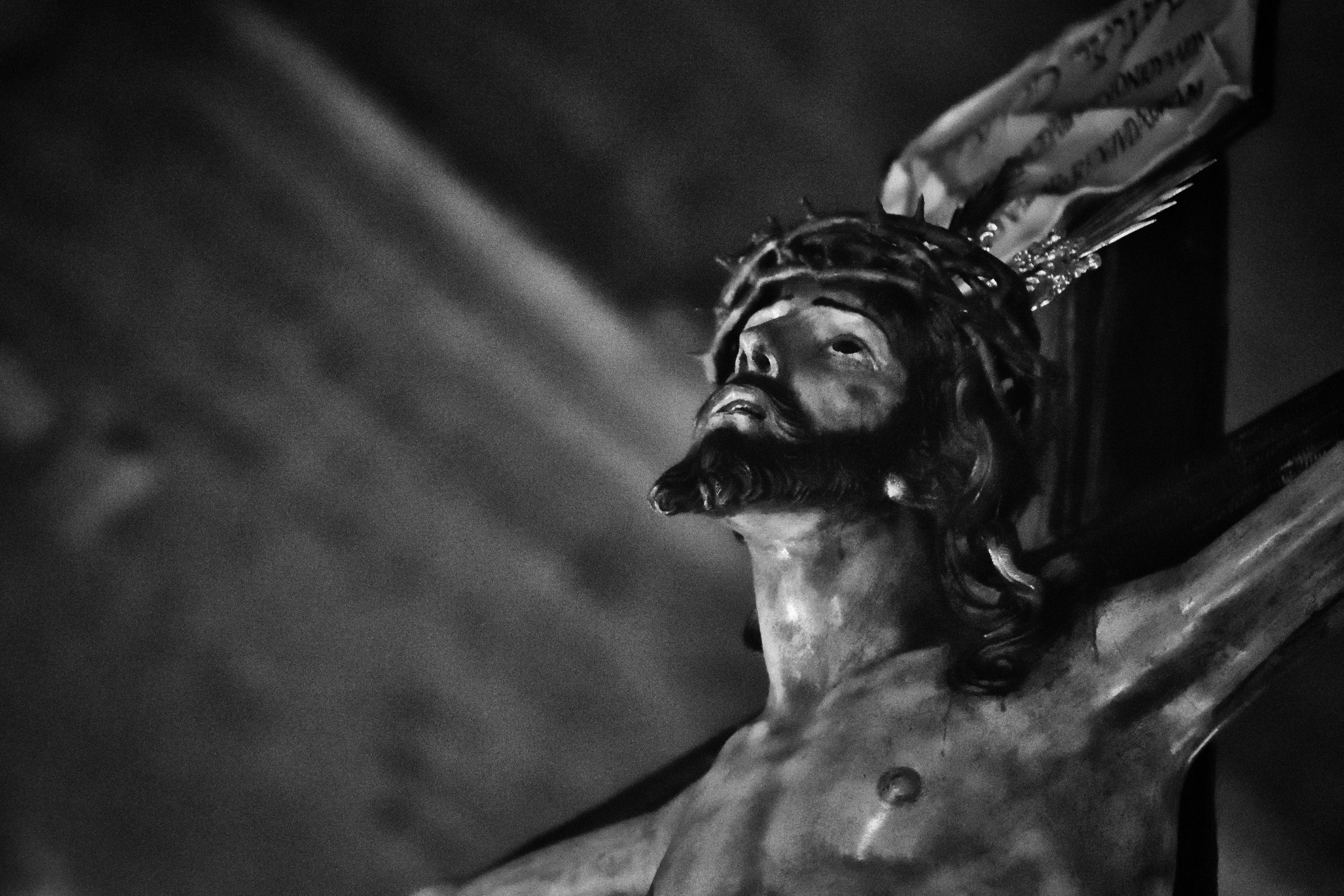God has a way of writing straight with crooked lines. 25 years ago today I made promises to God as a consecrated lay woman. I had been raised in a conservative Catholic home and thought that this was my calling. I longed to live a saintly life and to love God. Yet, after struggling for three and a half years I knew something just wasn’t right and I discerned it wasn’t my calling. I lived the single life for 11 years after coming home and this year my husband and I celebrated our 10th wedding anniversary with 5 kids in tow.
In the back of my mind on that day two and a half decades ago, I wondered if it was a bad omen (not that I really believed in omens) being consecrated on a day a saint got his head chopped off. But in the end, it truly came to pass that God had other plans for my life.
The Gospel passage does not focus on John the Baptist, rather on Herod’s imprudent reward, Herodias’ evil request and Herod’s subsequent internal conflict.
What must John have been thinking in those final moments when they approached him with an ax telling him he was going to die? Was he filled with fear? Or was he happy to finally be able to meet God face to face after being a good and faithful servant?
He surely had a “crooked lines” kind of life. Being born to an old barren couple, being related to the Son of God, living out in the desert, eating locusts and wild honey, baptizing with water, preaching repentance, and being thrown in jail, only to die a martyr’s death.
Perhaps your life appears similarly crazy, yet each one of us are called to follow Him, even unto death.
Dios tiene una manera de escribir recto con líneas chuecas. Hoy hace 25 años hice promesas a Dios como laica consagrada. Me crié en un hogar católico conservador y pensé que ese era mi llamado. Anhelaba vivir una vida santa y amar a Dios. Sin embargo, después de luchar durante tres años y medio, supe que algo no estaba bien y me di cuenta de que no era mi llamado. Después de volver a casa, viví la vida de soltera durante 11 años antes de casarme y este año mi esposo y yo celebramos nuestro décimo aniversario de bodas y tenemos 5 hijos.
En el fondo de mi mente ese día hace dos décadas y media, me preguntaba si era un mal presagio (no es que yo realmente creyera en los presagios) ser consagrado en un día en que a un santo le cortaron la cabeza. Pero al final, realmente sucedió que Dios tenía otros planes para mi vida.
El pasaje evangélico no se centra en Juan Bautista, sino en la imprudente recompensa de Herodes, la malvada petición de Herodías y el posterior conflicto interno de Herodes.
¿Qué habrá estado pensando Juan en esos momentos finales cuando se le acercaron con un hacha diciéndole que iba a morir? ¿Estaba lleno de miedo? ¿O estaba feliz de finalmente poder encontrarse con Dios cara a cara después de ser un servidor bueno y fiel?
Seguramente tenía un tipo de vida de “líneas chuecas”. Nacer de una pareja de ancianos estériles, estar relacionado con el Hijo de Dios, vivir en el desierto, comer langostas y miel silvestre, bautizar con agua, predicar el arrepentimiento y ser arrojado a la cárcel, solo para morir como mártir.
Tal vez tu vida parezca igualmente loca, pero cada uno de nosotros está llamado a seguir a Cristo, incluso hasta la muerte.
 Tami Urcia grew up in Western Michigan, a middle child in a large Catholic family. She spent early young adulthood as a missionary in Mexico, studying theology and philosophy, then worked and traveled extensively before finishing her Bachelor’s Degree in Western Kentucky. She loves tackling projects, finding fun ways to keep her little ones occupied, quiet conversation with the hubby and finding unique ways to love. She works at for Christian Healthcare Centers, is a guest blogger on CatholicMom.com and BlessedIsShe.net, runs her own blog at https://togetherandalways.wordpress.com and has been doing Spanish translations on the side for over 20 years.
Tami Urcia grew up in Western Michigan, a middle child in a large Catholic family. She spent early young adulthood as a missionary in Mexico, studying theology and philosophy, then worked and traveled extensively before finishing her Bachelor’s Degree in Western Kentucky. She loves tackling projects, finding fun ways to keep her little ones occupied, quiet conversation with the hubby and finding unique ways to love. She works at for Christian Healthcare Centers, is a guest blogger on CatholicMom.com and BlessedIsShe.net, runs her own blog at https://togetherandalways.wordpress.com and has been doing Spanish translations on the side for over 20 years.
Feature Image Credit: Sam Poullain, unsplash.com/photos/TuAZPj1uaZs


 Leslie Sholly is a Catholic, Southern wife and mother of five, living in her hometown, Knoxville, Tennessee. She graduated from Georgetown University with an English major and Theology minor. She blogs at
Leslie Sholly is a Catholic, Southern wife and mother of five, living in her hometown, Knoxville, Tennessee. She graduated from Georgetown University with an English major and Theology minor. She blogs at 
 Deacon Dan Schneider is a retired general manager of industrial distributors. He and his wife Vicki have been married for over 50 years. They are the parents of eight children and thirty grandchildren. He has a degree in Family Life Education from Spring Arbor University. He was ordained a Permanent Deacon in 2002. He has a passion for working with engaged and married couples and his main ministry has been preparing couples for marriage.
Deacon Dan Schneider is a retired general manager of industrial distributors. He and his wife Vicki have been married for over 50 years. They are the parents of eight children and thirty grandchildren. He has a degree in Family Life Education from Spring Arbor University. He was ordained a Permanent Deacon in 2002. He has a passion for working with engaged and married couples and his main ministry has been preparing couples for marriage.
 Mike Karpus is a regular guy. He grew up in Michigan’s Upper Peninsula, graduated from Michigan State University and works as an editor. He is married to a Catholic school principal, raised two daughters who became Catholic school teachers at points in their careers, and now relishes his two grandchildren, including the 3-year-old who teaches him what the colors of Father’s chasubles mean. He has served on a Catholic School board, a pastoral council and a parish stewardship committee. He currently is a lector at Mass, a Knight of Columbus, Adult Faith Formation Committee member and a board member of the local Habitat for Humanity organization. But mostly he’s a regular guy.
Mike Karpus is a regular guy. He grew up in Michigan’s Upper Peninsula, graduated from Michigan State University and works as an editor. He is married to a Catholic school principal, raised two daughters who became Catholic school teachers at points in their careers, and now relishes his two grandchildren, including the 3-year-old who teaches him what the colors of Father’s chasubles mean. He has served on a Catholic School board, a pastoral council and a parish stewardship committee. He currently is a lector at Mass, a Knight of Columbus, Adult Faith Formation Committee member and a board member of the local Habitat for Humanity organization. But mostly he’s a regular guy.






 Sheryl is happy to be the number 1 cheerleader and supporter for her husband, Tom who is a candidate for the Permanent Diaconate in the Diocese of Kalamazoo. They are so grateful for the opportunity to grow together in this process. Sheryl’s day job is serving her community as the principal for St. Therese Catholic School in Wayland, Michigan. Since every time she thinks she gets life all figured out, she realizes just how far she has to go, St. Rita of Cascia is her go-to Saint for intercession and help. Home includes Carlyn, a very, very goofy Golden Retriever and Lucy, our not-so-little rescue puppy.
Sheryl is happy to be the number 1 cheerleader and supporter for her husband, Tom who is a candidate for the Permanent Diaconate in the Diocese of Kalamazoo. They are so grateful for the opportunity to grow together in this process. Sheryl’s day job is serving her community as the principal for St. Therese Catholic School in Wayland, Michigan. Since every time she thinks she gets life all figured out, she realizes just how far she has to go, St. Rita of Cascia is her go-to Saint for intercession and help. Home includes Carlyn, a very, very goofy Golden Retriever and Lucy, our not-so-little rescue puppy. 
 Kathryn Mulderink, MA, is married to Robert, Station Manager for Holy Family Radio. Together they have seven children (including Father Rob), and four grandchildren. She is President of the local community of Secular Discalced Carmelites and has published five books and many articles. Over the last 30 years, she has worked as a teacher, headmistress, catechist, Pastoral Associate, and DRE, and as a writer and voice talent for Catholic Radio. Currently, she serves the Church by writing and speaking, and by collaborating with various parishes and to lead others to encounter Christ and engage their faith. Her website is
Kathryn Mulderink, MA, is married to Robert, Station Manager for Holy Family Radio. Together they have seven children (including Father Rob), and four grandchildren. She is President of the local community of Secular Discalced Carmelites and has published five books and many articles. Over the last 30 years, she has worked as a teacher, headmistress, catechist, Pastoral Associate, and DRE, and as a writer and voice talent for Catholic Radio. Currently, she serves the Church by writing and speaking, and by collaborating with various parishes and to lead others to encounter Christ and engage their faith. Her website is 
 Dakota lives in Denver, CO with her husband, Ralph, and their two sons, Alfie & Theophilus. She is the Dean of Enrollment Management for Bishop Machebeuf High School where her husband also teaches. You can find Dakota at the zoo or a brewery with her family or with her nose in a book at home. For more of Dakota’s writing check out
Dakota lives in Denver, CO with her husband, Ralph, and their two sons, Alfie & Theophilus. She is the Dean of Enrollment Management for Bishop Machebeuf High School where her husband also teaches. You can find Dakota at the zoo or a brewery with her family or with her nose in a book at home. For more of Dakota’s writing check out 
